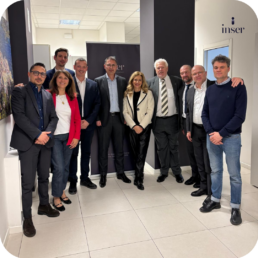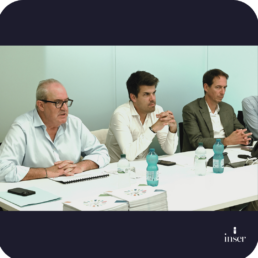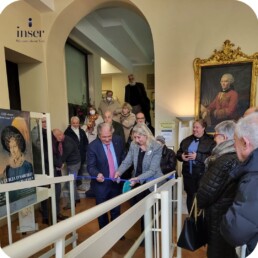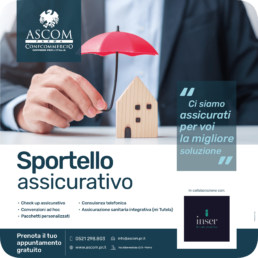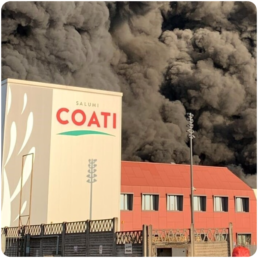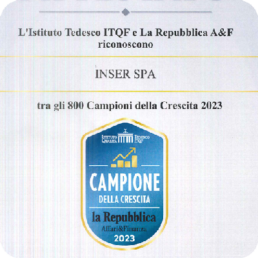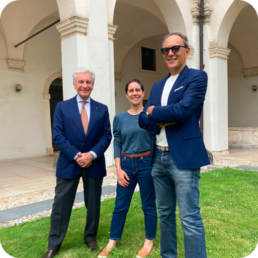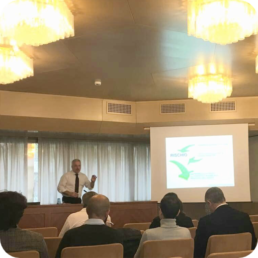Digital revolution: RAG and its implications in the insurance world
Digital revolution: RAG and its implications in the insurance world

AI, as early as 2024, will mark a momentous turning point for the insurance industry, thanks to the introduction of Retrieval Augmented Generation (RAG)
This advanced artificial intelligence technology promises to revolutionize the way insurance companies interact with their customers, providing more efficient, personalized and accurate services.
RAG represents a qualitative leap from traditional AI models, such as ChatGPT, which are known for their dialogue capabilities. The real innovation of RAG lies in its ability to access and integrate external data in real time. This allows AI systems to provide answers not only based on their 'digital brain' but enriched with up-to-date and relevant information from around the world.
For the insurance industry, adoption of RAG will result in significant improvement in customer service and process automation. Insurance companies could integrate advanced language models with their databases, offering richer and more personalized digital experiences. RAG-based chatbots and virtual assistants will be able to provide detailed and specific information in real time, turning digital interactions into unique experiences for each stakeholder.
Some of RAG's most innovative applications in the insurance industry include:
- service personalization: RAG chatbots will be able to provide personalized responses based on specific policy details, increasing customer satisfaction and loyalty;
- efficient claims management: with RAG, claims can be processed more quickly and accurately because the system can draw on a wide range of relevant data, speeding up response times and reducing errors;
- up-to-date risk information: RAG systems will be able to access up-to-date data on natural events or other risks, enabling companies to provide proactive advice to customers on risk management.
News
Budget Act 2024: Natural Disaster Insurance Required
Budget Act 2024: Natural Disaster Insurance Required

2024 represents a turning point for Italian companies, with the new budget law that introduces the obligation to take out insurance against natural disasters and catastrophes.
In a climate crisis with increasingly frequent extreme events, the Italian government has taken measures to protect companies from the damage caused by such events, which in Italy have an average annual cost of about 3 billion euros.
This legislation applies to all farms with registered or operational headquarters in Italy, except agricultural ones. Companies are required to cover assets such as land, buildings, industrial facilities and equipment from risks such as earthquakes, floods, landslides, floods and other disasters. Failure to comply with this provision entails the possibility of being denied public contributions, subsidies and facilities and insurance companies who refuse to offer such policies risk administrative penalties from 100,000 to 500,000 euros.
According to Ania, the association of insurance companies, most large Italian companies are already covered against natural and climate risks. However, more than half of small businesses still do not have adequate coverage and will therefore have to adapt to the new legislation.
The 2024 Budget Law, in particular in paragraphs 101 to 112 of Article 1, details the obligation for companies to take out insurance policies to cover the assets indicated in Article 2424 of the Civil Code.
In summary, the key provisions are as follows:
1. Exclusion of agricultural enterprises, with the maintenance of the current insurance system through ISMEA and AGRICAT.
2. In the event of non-compliance, undertakings may not receive state subsidies or subsidies.
3. Obligation on insurance companies to offer such cover, with penalties in the event of refusal.
4. Limitations on overdrafts, exemptions and proportionality of insurance premiums.
News
Inser for the culture: support for the publication of the volume on Maria Luigia d'Asburgo
Inser for the culture: support for the publication of the volume on Maria Luigia d'Asburgo

Inser has recently extended its commitment to the culture and historical heritage of Parma
In this regard, we supported the creation of the volume "Maria Luigia d'Asburgo e il Casino dei Boschi di Sala", a work that celebrates the life and legacy of the illustrious Duchess of Parma.
Presented as part of the XXIII "Week of Maria Luigia", the event of presentation of the volume was held Saturday, December 9, in the prestigious Hall of Festivals of the Museum Glauco Lombardi. This publication, edited by Francesca Sandrini, director of the Museum, offers an in-depth and varied vision of court life, architecture, art and the interiors of the Casino dei Boschi. Reflecting the interests and tastes of Maria Luigia, the work reveals an intriguing journey into the history of Parma.
Next to the volume, the homonymous exhibition was inaugurated, open free of charge to the public until 24 March 2024. The exhibition, located on the ground floor of the Museum, includes objects and works of art that testify to the link between the Duchess and the Sala residence. Visitors and enthusiasts can deepen their knowledge through guided tours scheduled for January, February and March 2024.
The volume, enriched by the contributions of experts such as F. Anedda, M. Bianchi, E. Fornaciari, G. Martini, F. Sandrini and F. Stocchi, is available exclusively at the bookshop of the Museum. Inser, confirming its active role in promoting culture, invites everyone to discover this fascinating chapter in the history of Parma, thus testifying to its commitment not only in the insurance field, but also in the enhancement of the local cultural heritage.
News
Inser at the side of the community: important donation to the Table of Providence in Trento
Inser at the side of the community: important donation to the Table of Providence in Trento

Signed agreement to donate over 100 thousand euros in three years
We are proud to announce our most recent commitment in the field of social responsibility: an agreement to donate more than 100 thousand euros to the Table of Providence in Trento. This contribution, spread over three years, symbolizes our long-term commitment to the Trentino community and reflects our vision of a company that goes beyond business logic.
The Mensa della Provvidenza, located in the former convent of the Capuchins, is now managed by the diocesan Caritas of Trento, which continues the work begun by the Capuchin friars. It represents a bulwark of support and assistance for less fortunate people, providing them with meals and comfort. Recognizing the importance of this service, we decided to support the Canteen with a donation as of this Christmas 2023.
This gesture of solidarity stems from the agreement with Verlingue, which has recently acquired a majority in INSER, and ISA, a minority shareholder.
At INSER, we strongly believe that business success must go hand in hand with contribution to society. Our initiative in favour of the Providence Table reflects our conviction that every enterprise can and should be an agent of positive change in society.
News
Invest in employee well-being with the assistance of Inser
Invest in employee well-being with the assistance of Inser

How and why to guarantee new welfare policies within the company
In recent years, the concept of corporate welfare has taken a central role in successful strategies, becoming a key element to attract, motivate and retain human resources, as well as offering the company benefits in terms of tax and contribution reductions.
Its correct application improves the quality of life of the employees contributing to their psychophysical well-being, increases motivation, productivity and loyalty to the business, finally guarantees economic benefits to the company itself, which can reduce labour costs and increase its competitiveness in the market.
We can define it as a system of non-monetary benefits with the aim of improving internal well-being. Its key element is flexibility, as the company assigns the employee a credit that can be used to compose a basket of specific benefits.
a) contributions for the education of children;
b) crèche and childcare services;
c) discounts and discounts for cultural events;
d) supplementary health cover;
e) repayment of interest on loans, thus support for the purchase of the first home;
f) childcare services (babysitting) during working hours;
g) contributions to the pension fund;
i) financial support for the education of children;
l) holiday facilities;
m) gym passes or physical activity incentives;
n) opportunities for training and personal development, such as study holidays;
o) elderly support who need assistance.
But if a company policy based on welfare is important for the employee, it is also important for the company for the following reasons:
a) improve and increase the retention and motivation of human resources;
b) optimises wages by reducing costs through non-monetary benefits;
c) builds a solid corporate identity by demonstrating the company’s commitment to the well-being of employees;
d) improves internal and external reputation by increasing employee satisfaction by attracting new investment.
To get the most out of these benefits, it is essential to work with industry professionals and use appropriate tools. Inser can be the ideal partner thanks to its vast experience in the design and implementation of programs and policies focused on corporate welfare that can be provided through the Cassa di Assistenza Integrativa called "Fondo Tutela". It is the tool developed by Inser available to companies in order to obtain care treatments, in the mutual sector, and favourable economic conditions for its members in relation to their needs.


